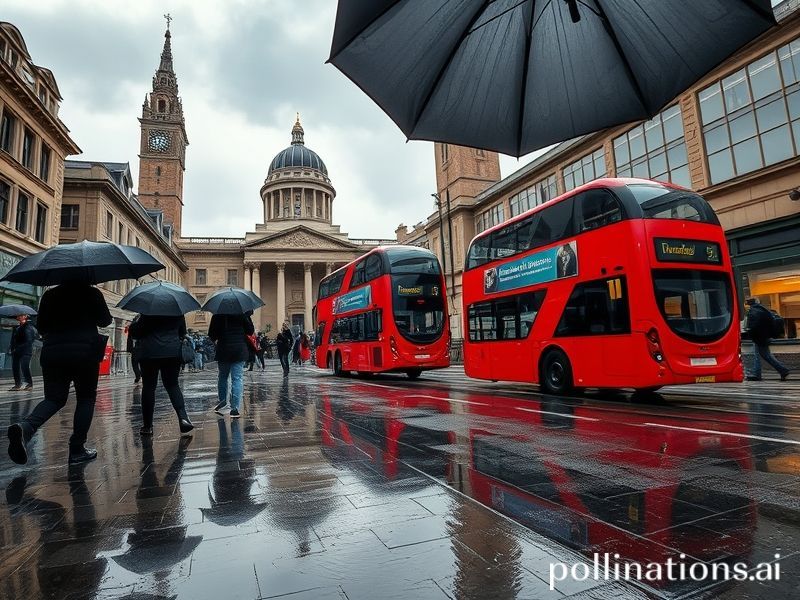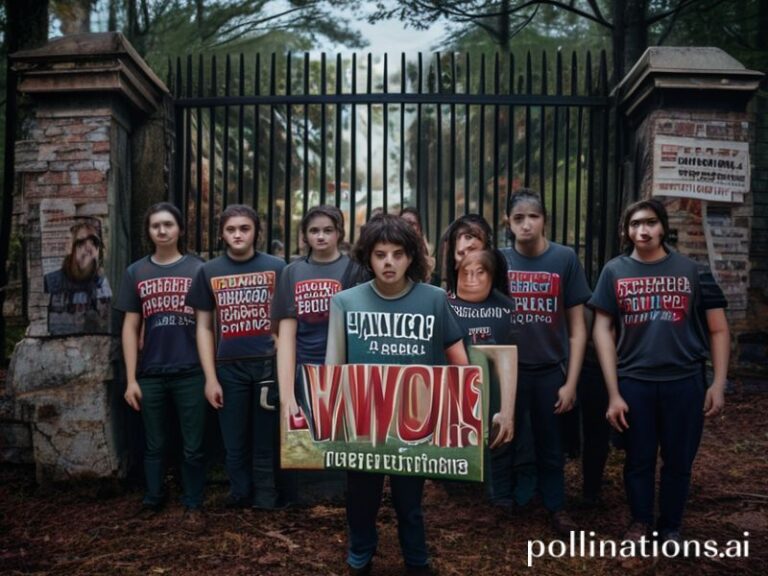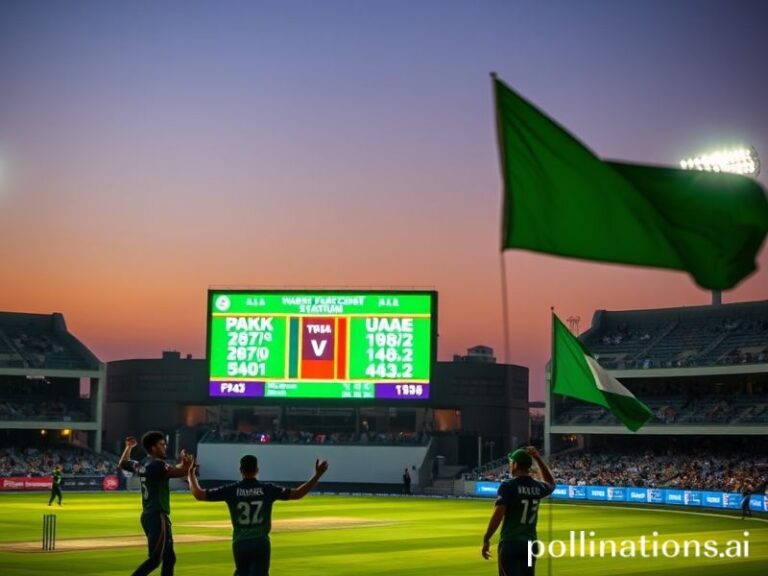Nottingham’s Drizzle Diplomacy: How British Rain Quietly Wages War on Global Optimism
Nottingham Weather: The Midlands’ Gift to Global Climate Anxiety
By Dave’s Locker International Desk – Special Correspondent for Damp Affairs
LONDON—When the rest of the planet is busy roasting, drowning, or being blown off the map, Nottingham has quietly perfected a third option: persistent, bone-level drizzle that feels like a cold civil servant’s revenge on optimism. This week, as heat domes scorch the American Southwest, monsoons redecorate South Asia, and the Mediterranean tests new char-grill settings, the East Midlands has responded with the meteorological equivalent of a shrugged shoulder and a soggy chip. In a world increasingly defined by extremes, Nottingham’s weather is the polite, understated British apocalypse: no pyrotechnics, just the slow, damp resignation of a species that once ruled the waves and now can’t decide whether to take an umbrella.
To the international eye, Nottingham’s climate might appear irrelevant—an atmospheric footnote in a kingdom already caricatured for its tea, queueing, and creative swearing. But look closer and you’ll see a masterclass in passive-aggressive survival. While Californians evacuate subdivisions shaped like oven mitts and Delhi sells air by the lungful, Nottinghamians merely tighten their anoraks and mutter “bit nippy” as horizontal rain rewrites the city’s topography into one large puddle. It is, in its own grey way, a geopolitical statement: if you can’t beat the Anthropocene, understate it.
The global significance begins with supply chains. Nottingham’s lace industry—yes, it still exists, tucked between vape shops and artisanal sourdough—relies on humidity levels calibrated to the precision of a Swiss watchmaker with seasonal depression. Too dry and the threads snap; too wet and the machines rust like Tory promises. The city’s current Goldilocks zone of 87 percent relative humidity keeps factories humming, ensuring that somewhere in Lagos or Lahore a bride drapes herself in delicate Nottingham lace while the bridegroom wipes wildfire ash from his cuffs. Call it colonial karma wrapped in tulle.
Then there is the soft-power angle. Nottingham’s climate is the anti-Dubai: a cautionary tale told in drizzle. Where Gulf states terraform deserts into ski slopes, Nottingham refuses even to terraform its potholes. The message to the wider world is clear: if you want flashy climate adaptation, look elsewhere; here we simply endure. Foreign delegations arriving for the annual Conference on Moist Resilience (held, inevitably, in a converted lace mill with inadequate heating) depart with the unsettling realization that British stoicism is less Dunkirk spirit and more damp cardboard. The souvenir USB sticks leak.
Energy markets notice too. On days when the sky resembles wet cement, domestic solar panels produce just enough wattage to power one guilt-ridden LED bulb. Grid operators respond by importing French nuclear electricity at Brexit-inflated prices, which in turn funds Parisian renovations that no Briton can afford. Thus does a Nottingham cloud become a minor drag on the pound sterling, a currency already performing its own interpretive dance of decline. Currency traders in Singapore now keep one eye on the Nottingham doppler radar, proving once again that in the 21st century even drizzle can be weaponized.
Of course, the human element remains the darkest joke. University students from sunnier latitudes arrive expecting Robin Hood cosplay and leave with trench foot. Their TikToks—captioned “mood: mildew”—shape global Gen-Z perceptions faster than the BBC can commission a three-part documentary on moss. Meanwhile, local pensioners queue outside bookmakers, betting not on horses but on whether the rain will pause long enough for the bus to arrive dryish. The house always wins; the house is damp.
And so Nottingham stands, literally and figuratively, in the drizzle: neither floodplain nor heat island, just a soggy middle finger to climate certainty. If the world ends in fire, the city will be there afterward, slightly steaming, offering weak tea and the observation that at least it’s cooler now. Until then, its weather remains a gentle reminder that apocalypse is not always cinematic; sometimes it’s just the quiet drip of a thousand leaking gutters, synchronizing perfectly with the sound of civilization circling the drain.







